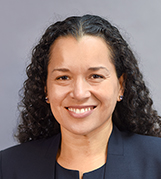New U.S. Rules For Investment Advisors Could Bring Aggressive Scrutiny on Non-U.S. Individuals
The U.S. Financial Crimes Enforcement Network (FinCEN) has proposed rules extending U.S. anti-money laundering program requirements to investment advisors. This is the latest U.S. move to put the assets and financial transactions of non-U.S. ultra-high-net-worth individuals under scrutiny, putting them at risk. Individuals and their advisors should take proactive steps to protect their legitimate interests.
March 21, 2024
New rules proposed by the U.S. Treasury Department’s Financial Crimes Enforcement Network (FinCEN) would extend U.S. anti-money laundering program requirements to investment advisors. If implemented, the rules will become the latest in a series of moves by U.S. authorities to scrutinize the assets and financial transactions of ultra-high-net-worth individuals (UHNWIs) – including those located outside the U.S. The new rules include provisions requiring financial advisors to file reports with U.S. authorities about any so-called “suspicious” activity on the part of their clients or face investigation and prosecution.
This increases the risk that non-U.S. UHNWIs can become the target of investigations, potentially leading to global asset freezes, seizures, or other penalties. At-risk clients and their advisors can take proactive steps to protect legitimate interests and withstand this newly anticipated scrutiny by U.S. authorities.
What Are the Proposed New Rules?
The new rules require investment advisors registered with the U.S. Securities and Exchange Commission (SEC), or those exempted from registration but still required to report to the SEC, to implement an anti-money laundering and counterterrorism financing compliance program; file suspicious activity reports with FinCEN; and keep records such as those related to fund transfers.
The rule would also allow information sharing between FinCEN, law enforcement agencies, and certain financial institutions. FinCEN has pointed to the use of U.S. investment advisors by sanctioned individuals, corrupt officials, tax evaders, and other criminals looking to access U.S. financial markets.
However, similar concerns have led U.S. authorities to err on the side of acting aggressively in the past, putting individuals who have done nothing wrong at risk of U.S. government investigation and enforcement.
How Can Clients Prepare for the Risks?
At-risk UHNWIs should take proactive steps to reduce their risk and maintain access to investment advice, including:
- Assess asset vulnerabilities against potential government attacks. Individuals at risk of attack by the U.S. or other government authorities should consider a detailed examination of their own transactions and asset structures – including those involving offshore jurisdictions such as the British Virgin Islands and Cayman Islands – and explore lawful and appropriate preparatory measures that can be taken should authorities launch investigations.
- Collect evidence proactively for global use. Additional scrutiny by regulators of valuable assets and transactions increases the risk of misunderstandings by regulators, who often do not have access to the full picture of the transaction. It is important for at-risk individuals to gather all relevant evidence demonstrating the lawfulness of any significant transactions. Ideally, the evidence can be collected and prepared in a manner that would be accepted by the U.S. and other relevant authorities, as well as by financial advisors and institutions incentivized to “over report” their customers to regulators to avoid unwanted scrutiny by regulators of themselves.
- Develop a factual narrative to protect against public attacks. Individuals at risk can develop a proactive communications strategy that anticipates future legal actions and serves to discredit false allegations cast against them, with the purpose of mitigating reputational harm caused and ensuring that the facts are accurately reported.
With U.S. authorities continuing to expand enforcement efforts outside the United States, high-profile UHNWIs are now at risk of investigations being launched against them by their own advisors or financial institutions. At-risk individuals can seek to mitigate this risk by taking proactive steps now to preserve their lawfully obtained assets from undue scrutiny.
About Kobre & Kim
Kobre & Kim is a global law firm focusing on cross-border disputes and investigations, often involving fraud and misconduct.
To preserve the assets, liberty and reputation of UHNWIs with global business interests, our firm:
- Provides offensive and defensive cross-border litigation and crisis management strategies in court and out-of-court;
- Brings together roughly a dozen former U.S. and UK government lawyers across offshore jurisdictions in the BVI and Cayman Islands, Asia, EMEA, Latin America and the U.S.;
- Takes a multidimensional approach to UHNWI-focused disputes investigations to resolve business disputes and regulatory investigations, trace and recover misappropriated funds, defend against asset attacks, and acquire and strategically deploy information to provide UHNWIs with a commercial advantage in their disputes and investigations.





